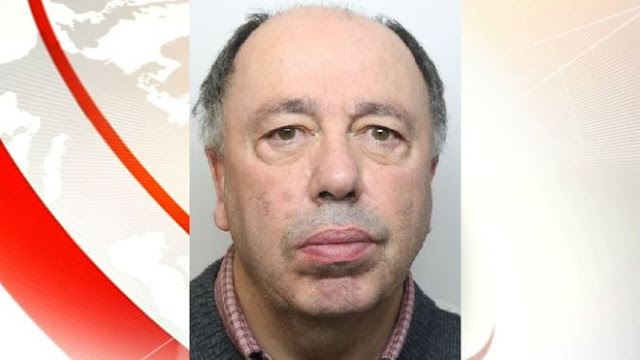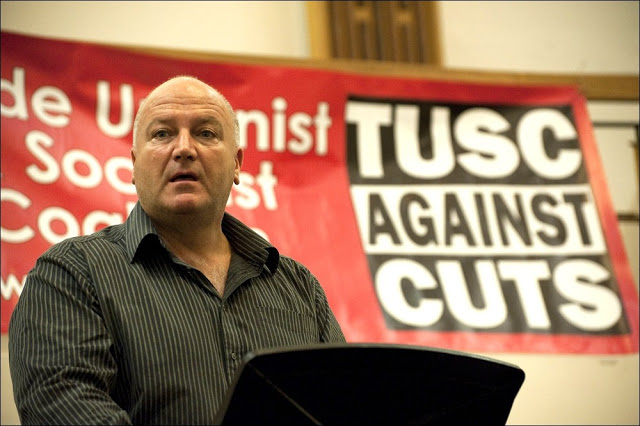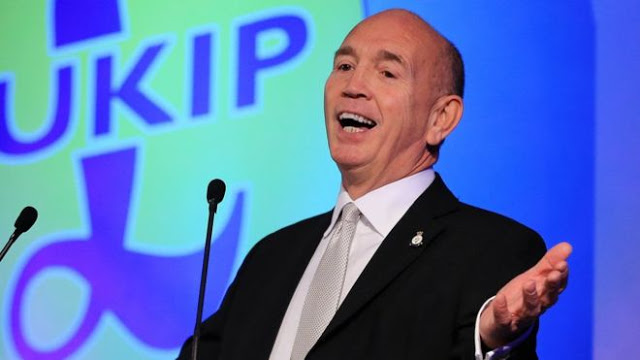The CPS refused ‘in the public interest’ to Prosecute Tory Party in Election
Expenses Scandal but TUSC’s Chris Fernandez is Gaoled for 15 months for Trivial Electoral Offence
 |
| Christopher Fernandez – TUSC election agent gaoled for 16 months by a judiciary and legal system that turns a blind eye to Tory election frauds |
You may remember those 20 Tory MPs who overspent and underdeclared their expenses when it came to
filing their electoral returns. Only one
of them is facing a trial. Local expenses such as hotel bills for activists bussed in, were charged
to national rather than local expenses limits in a deliberate attempt to get
round spending limits.
was not however deemed to be ‘in the public
interest’ even though the electoral
returns ‘may
have been inaccurate’. Of course we will never know how inaccurate
these limits were as the Establishment, in the form of the Crown Prosecution
Service and its reactionary head, Alision Saunders refused to prosecute.
came to an election agent for the socialist Trade Union & Socialist
Coalition, Chris Fernandez, who was found guilty of misleading people who sign
a candidates proposal form, then a swingeing 16 months sentence was handed
out. Chris denies the allegation and
argues that he took petitions about the closure of a swimming pool with him in
order to demonstrate what TUSC stood for.
that Chris Fernandez forged the signatures.
Bob Spink, a UKIP candidate and ex-Tory MP was convicted of the same
offence. He received a 6 months suspended sentence. Other agents and candidates who have forged
peoples’ signatures have got off with a caution.
is that the Police, who are always telling us that when it comes to rape and violence
against the person, don’t have enough resources yet they were able to visit all
80 electors who nominated TUSC candidates several times.
support the demand for Chris Fernandez to
be freed on bail and for his sentence to be reduced to a non-custodial
one at worst.
electors’ court case
agent for eight Trade Unionist and Socialist Coalition (TUSC) candidates at the
2016 council elections in Derby, was sentenced on 13 February to 15 months
imprisonment for ‘electoral fraud’.
Chris had been found guilty of misleading voters into signing the TUSC
candidates’ nomination papers.
argued that many electors had signed believing that they were backing a
petition against the closure of Derby’s Moorways swimming pool and not a local
election nomination form.
was no question of votes being fraudulently cast, of ballot papers being
interfered with, of people’s right to vote how they wish being denied, of
impersonation of voters, or postal ballot irregularities; no public money was
misspent.
process which enables candidates to appear on ballot papers in local
elections. That is why the comments of
the trial judge, Peter Cooke, that this case ‘strikes at the heart of our democracy’, were ludicrous.
the Welsh assembly and the Greater London authority regional list seats can all
self-nominate without having to collect signatures. Do these elections ‘strike at our democracy’?
disproportionate, even if the offences had been proven beyond reasonable
doubt. But what is most disturbing about
this case is that there was, in fact, plenty of doubt.
 |
| Eight candidates stood for the TUSC in the 2016 elections for positions on Derby City Council |
Heemskerk attended the trial and has raised serious questions about the CPS’s
case which, unfortunately, were not addressed in the trial.
- There
is no statutory test that canvassers are expected to make to ensure that ‘subscribers’ to nomination papers
have ‘sufficiently understood’
what it is they have signed. But
the CPS, unchallenged in court, set the bar not far from the level of a
Mastermind contestant; - There
is no statutory or even informal guidance on what political campaign
material canvassers can or cannot take with them when they collect
signatures for nomination papers and the closure of the pool was a burning
local political issue; - There
was no discussion in court on what responsibility people have for their
own actions when they sign a form headed, ‘Local government election –
Nomination Paper’, which includes two declarations that the person signing
is agreeing to nominate an election candidate; - There
was no questioning of the role of the police, yet officers visited the 80
electors who nominated the TUSC candidates, sometimes on two or three
occasions, and spent more time with them than Chris Fernandez did! How did that shape what people remembered
from their earlier encounter with Chris?
is impossible not to draw the contrast between the Crown Prosecution’s approach
to this case and that of the Conservative Party’s ‘Battle Bus’ 2015 general
election expenses scandal.
20 or so marginal seats involved may well have made the difference in their
winning the election and everything that has followed from that.
CPS accepted that Tory candidates’ election returns ‘may have been inaccurate’ and therefore breaking election law,
they decided it was ‘not in the public
interest to charge anyone’. Who said
what on the doorstep during a municipal election in Derbyshire was obviously of
greater concern!
 |
| No Conservatives will face charges for breaches of expenses rules over the 2015 general election “battle bus” |
and disproportionate political prosecution of Chris Fernandez should not cower
trade unionists, socialists and working class community activists or stop them
from taking their battle against austerity and for a new society into the
ballot box. This was one case, with
specific circumstances, tried in one court.
It does not establish ‘case law’, applicable to any other possible
instance in the future.
himself, when asked by the prosecution barrister whether he supported democracy, replied that yes, the
working class has always fought for the right for political representation,
from the Levellers in the English revolution to the 19th century Chartists, and
is still fighting today. That should be
the main message from this trial.
challenging the CPS case in close detail, is available here
Fernandez (21-12-1957), A5447ED, B-wing, HMP Nottingham, 112 Perry Road, Sherwood,
Nottingham, NG5 3AG. The envelope should
include your name and address on the back.
the police have collated over 2,000 cases of alleged electoral fraud. Just one
referred to a possible charge regarding “a
voter [being] tricked into signing a nomination form for a candidate under
false pretences”. But there is no
record of an attempted prosecution in this case. In fact, all the publicly available records
of convictions for nomination offences since 2008 have been for cases of false
signatures or candidate ineligibility.
trial the ex-Tory MP for Castle Point in Essex, Bob Spink, who defected from
the Tories in 2008 to become UKIP’s first MP (he lost his seat in 2010), was
found guilty of ‘tricking voters into signing nomination forms believing they were
petitions’ in the 2016 local elections.
So, no convictions, or attempted prosecutions for this offence (at least
since the public records begin in 2008), and then two come along at once. Is there something going on?
2017, the same month as Chris Fernandez was charged in Derby. In both cases, while local police officers
collected the evidence, it was the decision of the Crown Prosecution Service
(CPS) whether or not to proceed to court.
alleged electoral fraud resulted in court action. The publicly available police commentaries
include many instances of prima facie breaches of electoral law which were “locally resolved” or “suitable advice given”. In 2014, for example, a clear breach of
electoral law in the Royal Borough of Kensington and Chelsea did not go to
prosecution on the grounds that it was “not
in the public interest as he [the candidate] was not elected”. In 2016 a Tory election agent in Preston
forged signatures on eight candidate nomination forms and “accepted a police caution”.
test’ for the CPS tops – in Derby as in the ‘Battle Bus’ case – wasn’t actually
a ‘public’ one but how best to look out for their own careers by appeasing
their government masters. This is not to
say that the decision to prosecute Chris Fernandez was a ‘Tory conspiracy’
against TUSC (or, for that matter, against their UKIP enemies in the Bob Spink
case). But the Tories, as part of
battening down the hatches against the accumulating rage at never-ending
austerity, are clamping down on democratic rights.
rights, many of them emanating from the recommendations of the 2016 review, led
by the former Conservative Party chairperson Sir Eric Pickles, including a call
to prevent “sham nominations and ensure
that nominations are validly made”.
this issue is that it will consider giving council Returning Officers greater
powers to reject nominations. But in the meantime there’s no harm in sending a
message to council officers (and ambitious Police Economic Crime Unit officers
and Crown Prosecutors) to make life as difficult as possible for protest
candidates and others outside the establishment circles.
elections is already an obstacle course for inexperienced campaigners and
smaller parties. Even getting hold of
the electoral register to collect the necessary ten subscribers, for example,
is not a straightforward task.
candidate they are entitled to a copy of the register of electors for the
ward. But the earliest someone
officially becomes a candidate is when the official notice of election is
published, just six working days before nominations have to be submitted.
 |
| Bob Crow speaking at TUSC’s 2012 London Assembly election campaign launch |
departments will release a copy of the electoral register to someone declaring
themselves as a candidate or election agent before the official notice of
election, once they have signed a legal form stating that they will only use
the register for electoral purposes. But
some Returning Officers do not give the same leeway to local TUSC candidates
and agents as they do the establishment parties. Now they might feel further encouraged to be
obstructive.
proceed with the Conservative ‘Battle Bus’ case on May 10th, when the 2017
general election was under way and just days after the Tories’ triumph in the
local elections. Predictions of a
100-plus seat Tory majority in the forthcoming June poll were widespread. It was obvious to anyone why the CPS tops
took the decision that they did at the time that they did.
they were to be completely confounded by events. Just five weeks later the rage that has been
simmering away since the 2008 crash found an electoral outlet in the surge of
support for Jeremy Corbyn’s anti-austerity message.
working class politics – is not over.
The Blairites – the capitalist establishment’s representatives within
the Labour Party – are clinging on tenaciously to their positions, in
parliament and in town halls. Some on
the left argue that Labour Party candidates should be supported regardless of
whether they are ‘Corbynistas’ or Blairites. But it is also the case that some
activists will decide to stand under an independent banner against the Labour
right-wing cutters. That is a debate for
the working class: it won’t be stopped by servants of the ruling class creating
bureaucratic obstacles.
No
charges over 2015 Conservative battle bus cases
Derby
election campaigner jailed for election fraud
Bob Spink
handed suspended sentence over election fraud
TUSC chair
Dave Nellist pays tribute to Bob Crow
 |
| Bob Spink told the court he had collected more than 1,000 signatures in his career – unlike socialist Chris Fernandez he received a 6 month suspended sentence |
suspended six-month prison term after being convicted of election fraud.
Spink, 69, former MP for Castle Point, Essex, committed the offences during the
Castle Point borough council elections in May last year.
judge in the case said the offences undermined “democratic
structures”.
prison sentence will be suspended for two years. He was also ordered to carry
out 150 hours unpaid work.
 |
| Image copyright PA Image caption UKIP agent James Parkin was also given a suspended prison sentence |
UKIP’s
election agent at the time, James Parkin, 39, of Canvey Island, who was also
convicted of two counts of the same charge and had admitted two, received the
same sentence at Basildon Crown Court on Friday.
men were ordered to pay £5,000 each towards the cost of the case.
the trial last year, jurors heard how Spink tricked “elderly and infirm” voters into signing the forms in April
2016, without making it clear what the documents were or which party he
represented.
court heard people in Spink’s constituency signed the forms believing they were
petitions and had no idea they were supporting the UKIP candidate in the local
council elections.
had claimed everything was above board and that residents knew what they were
signing.
of the candidates included in Spink’s deception won a seat on the council –
although a handful finished runner-up, the court heard.
the pair Judge Ian Graham said: “This
sort of offending undermines the working of democratic structures in this
country.
democratic process depends on the good faith of those who engage in it, because
a lot of what happens is of course quite difficult to police.”
from Benfleet, Essex, was Conservative MP for Castle Point from 1992 to 1997,
and again from 2001.
2008, he defected from the Conservative Party and joined UKIP, effectively
becoming its first MP.
